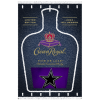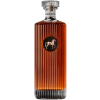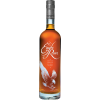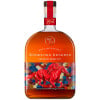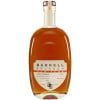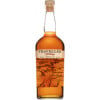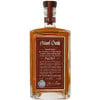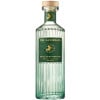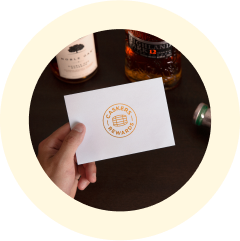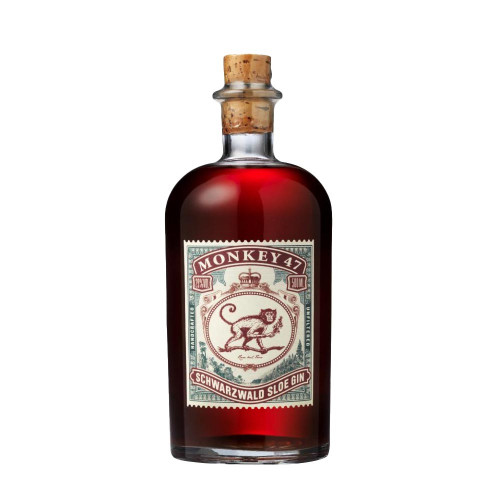About Monkey 47 Schwarzwald Sloe Gin
The ingredients for making this gin are steeped in French-made molasses alcohol for 36 hours prior to being distilled through an Arnold Holstein copper-pot still. Keller combines traditional maceration and distillation techniques, as well as vapor infusing certain ingredients, to gather precise amounts of the more volatile botanicals and accentuate more sublime flavors.
The Monkey 47 Schwarzwald Sloe Gin puts one specific botanical into the spotlight ― blackthorn, also known as sloe. The close cousin of the plum is known for reducing inflammation, helping with upset stomachs, as well as several other health benefits. The berries are harvested following the first frost of the year, washed, and left to macerate for 4 weeks in their 94-proof Schwarzwald Dry Gin. By the time they draw the macerate from the top, the sediment has settled to the bottom of the tank. The liquid is then cut down to 58 proof and left to rest for an additional 6 weeks.
Get your bottle of this fruity and unique sloe gin today!
About Monkey 47
After serving honorably in World War II, Commander Montgomery "Monty" Collins of the Royal Air Force was discharged in 1951 and moved to the Northern Black Forest where he opened a country guest home nicknamed "The Wild Monkey." The Black Forest area is notorious for producing some of the world's finest fruit liqueurs, and so Collins eventually began experimenting with distillation. In time, he perfected the recipe for his very own gin, which became the signature spirit served at The Wild Monkey until the 1970s.
"When I heard about a special gin that contains classical spices and also ingredients from the Black Forest such as spruce shoots and lingonberries, I left my job and began doing research with the aim of bringing this gin back to life," says Alexander Stein, who resurrected Collins' gin. After two years of research and development, Stein, together with master distiller Christoph Keller, settled on a recipe that called for 47 unique ingredients. The ingredients include acacia, acorus, calamus, almond, angelica, bitter orange, blackberry, cardamom, cassia, chamomile, cinnamon, citron verbena, cloves, coriander, cranberries, cubeb, dog rose, elderflower, ginger, grains of paradise, hawthorn berries, hibiscus abelmoshus, hibiscus syriacus, honeysuckle, jasmine, kaffir lime, lavender, lemon, lemon balm, lemongrass, licorice, lingonberries, mondara didyma, nutmeg, orris, pimento, pomelo, rosehip, sage, sloe, and spruce.
About Gin
According to Winston Churchill, "The gin and tonic has saved more Englishmen's lives and minds than all the doctors in the Empire," referring to the British officers using it to treat malaria in India.
Initially made for medicinal purposes, gin gets most of its flavor from the juniper berries added after the distillation process. It sure has come a long way from the Middle Ages, with the introduction of new botanicals, fruits, and spices, bringing it closer to people of all flavor varieties.
Check out our impressive selection of gins, find your new favorite in the Top 10 gins, or explore the Best gins under $50.
